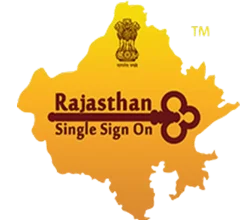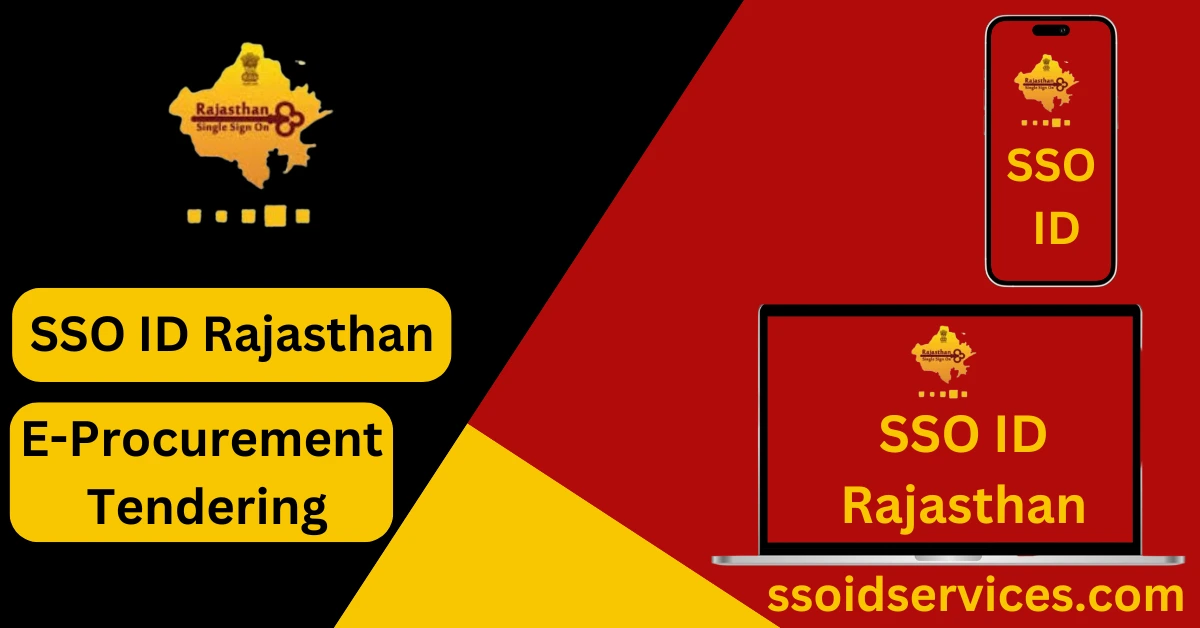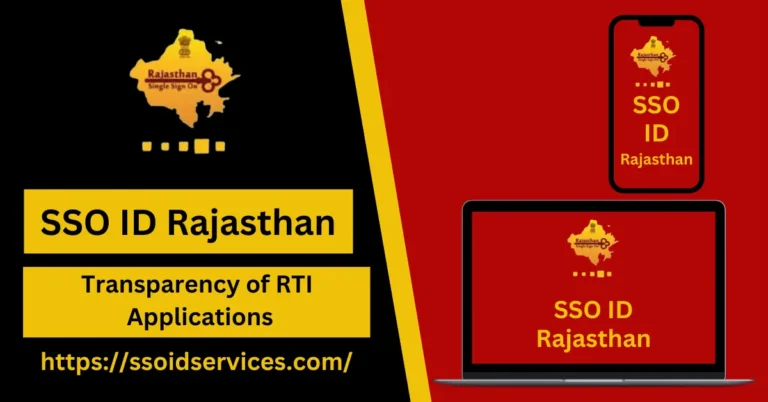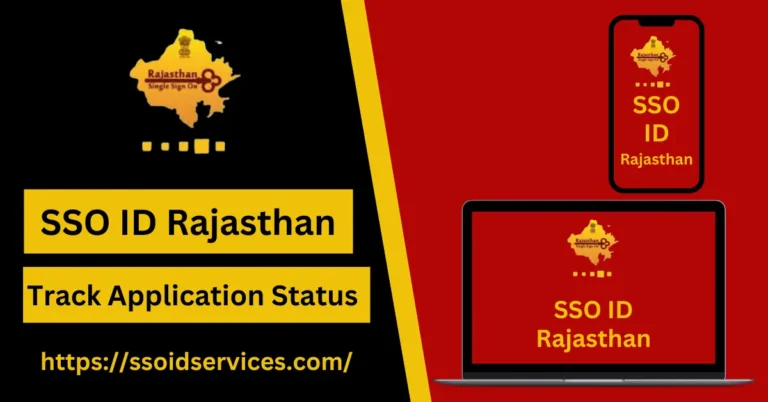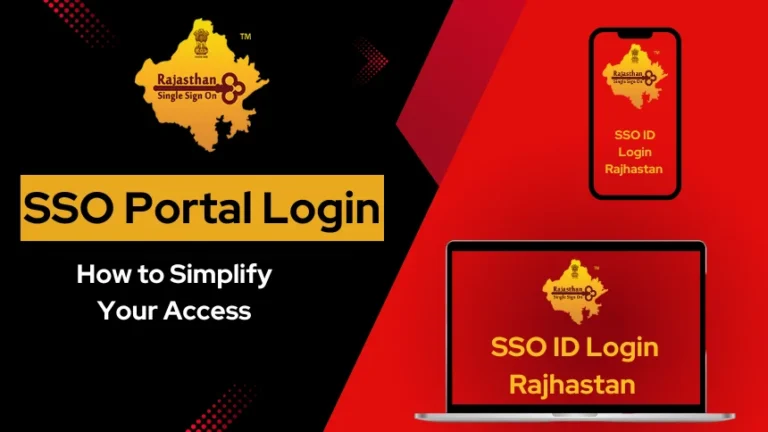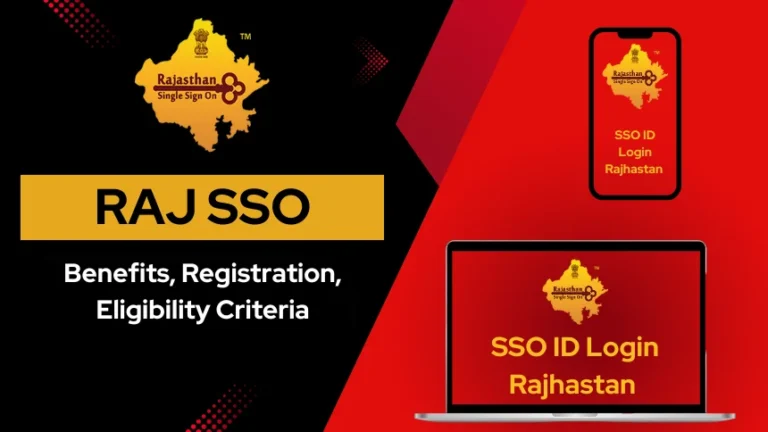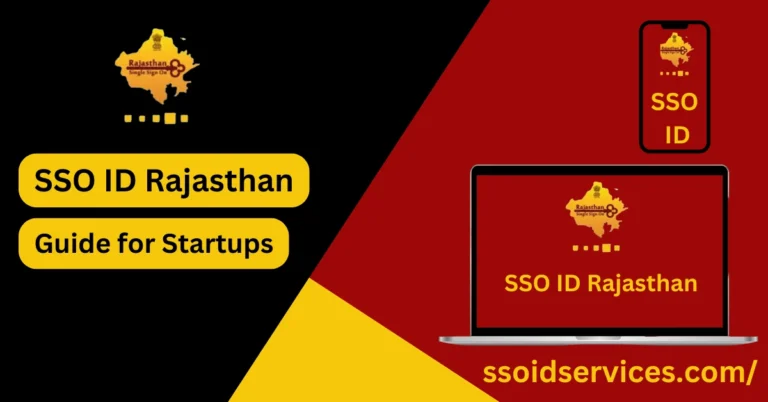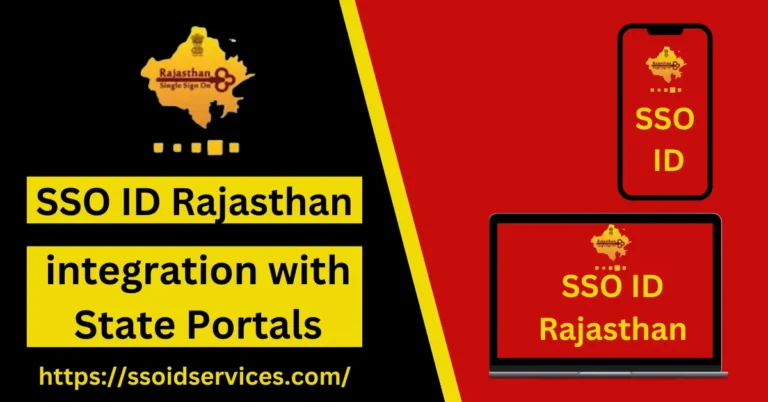SSO ID Rajasthan E-Procurement Tendering
E-Procurement program has grown to be a major part of state efforts in this digital age. It is helping the state improve its transparency, effectiveness, and accessibility. Single Sign On (SSO) Identification has allowed the Government of Rajasthan’s procurement system to be simplified, as it allows businesses, government entities, and individuals, to easily participate in eProcurement. This article explores SSO ID Rajasthan’s role as a key component of e-procurement. We examine the main factors that impact its effectiveness.

A Review of the Factors that Impact SSO Rajasthan for E Procurement and Bidding
SSO ID Rajasthan has a high level of efficiency and effectiveness in the contexts of eProcurement.
User Acceptance and Accessibility
- The success and adoption of SSO ID depends upon its wide acceptance by the users. These include vendors, officials from government, and others involved with procurement. The ease of accessing the system and having a friendly interface is critical for ensuring high rates of adoption.
- Investments: Although accessibility is a priority, security may also be impacted. Simplifying logins could make the system more vulnerable. The challenge of finding the right balance to achieve between convenience and security can be a real one.
- Problems: One of the biggest challenges is to convince smaller vendors (especially those with less technological capability) to use SSO ID. This can be overcome by focusing on training and providing support.
Secure Data and Privacy
- Importance eProcurement, tendering, and other electronic processes can involve highly sensitive data including financial details, contractual agreements, and bid information. Assuring security and confidentiality of data is essential.
- Tradeoffs : Strict security measures can affect the system’s speed and effectiveness. For example, multi-factor verification adds security to the system but also can complicate user experience.
- Challenges In order to keep the user’s convenience while keeping their system safe, it is necessary to update and monitor continuously. Also, the strict compliance with data privacy rules requires that robust encryption measures and data protection be taken.
Other Government Systems:
- Important: SSO ID must be seamlessly integrated with other systems of government, including financial management systems and tax portals.
- Tradeoffs While integrating government operations can improve their efficiency, they may introduce additional complexity in the management of systems and synchronization of data.
- Problems: Achieving the goal of interoperability can be a challenge due to different standards in technology and legacy system. It is important to keep the integrity of systems while maintaining a smooth flow of data.
Legal Framework and Compliance with Regulations:
- Importance Procurement, tendering, and e-procurement are subjected to a number of different legal and regulation frameworks to ensure fairness. Transparency, accountability and fairness. SSO ID should comply with all regulations.
- Make tradeoffs. Compliance is often accompanied by additional validations and layers of documents, slowing down the purchasing process. Bypassing the requirements in order to accelerate processes may have negative legal implications and can undermine the integrity.
- A challenge: Staying up to date with ever changing regulations, and making sure that SSO’s ID system always complies is a continuous task. The system must be updated regularly and there should always be legal oversight.
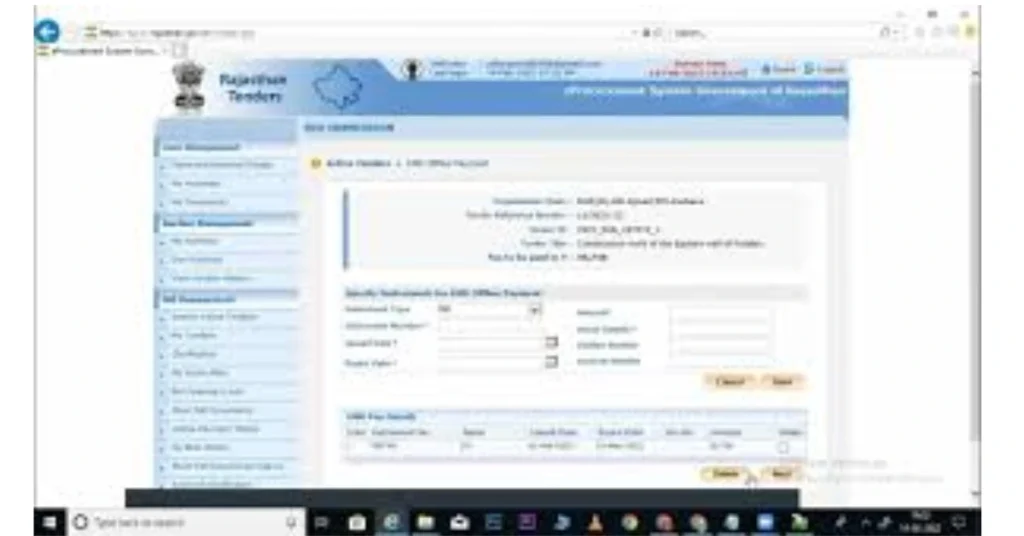
Scalability:
- Importance As users and transaction volumes increase, SSO ID systems must be scalable in order to keep up with the demand.
- The tradeoff: To increase scalability, infrastructure and technology investments can be significant. Balance the performance requirement with budgetary limitations is critical.
- Challenges Reliability of the system is critical, in particular when there are high loads such as deadlines to submit tenders. To achieve this goal, it is necessary to have a strong infrastructure as well perform regular testing of performance and upgrade the system on a timely basis.
User Support and training:
- It is important to provide effective user training and support in order to get the most out of SSOID for electronic tendering and procurement. Users must have a good understanding of how the system works and be able to solve common problems.
- Tradeoffs Extensive training programs improve user competency, but they take time and money to create and implement. It can also be difficult to provide ongoing support, especially when the number of users is high.
- Problems: It is difficult to create training material that can be used by all users. In addition, a good support system is necessary to respond promptly to queries from users.
Balancing different factors can be a difficult task
The task of balancing all the different factors that influence the SSO ID Rajasthan’s performance in the eProcurement process and the tendering phase is complex. Every factor is interdependent. This means changes to one aspect can ripple through the system. Enhancing security, for example, could result in a reduction of accessibility. Meanwhile, increasing the scalability may strain your financial resources. The decision-makers should carefully evaluate these trade-offs in order to develop a system which is efficient, reliable, and easy-to-use.
A dynamic technology landscape and changing regulations require that SSO ID be flexible. The effectiveness of the system will be maintained over time by regular updates and feedback from users.
What is the Importance SSO ID Rajasthan?
SSO ID Rajasthan’s importance in electronic procurement and tendering is not to be underestimated. It is a key component in streamlining the process of procurement, cutting administrative costs, and improving transparency. SSO ID, which provides one point of entry for all procurement activities, simplifies the entire process, both for suppliers and for government officials. It makes it easy to monitor tenders, participate and track their progress.
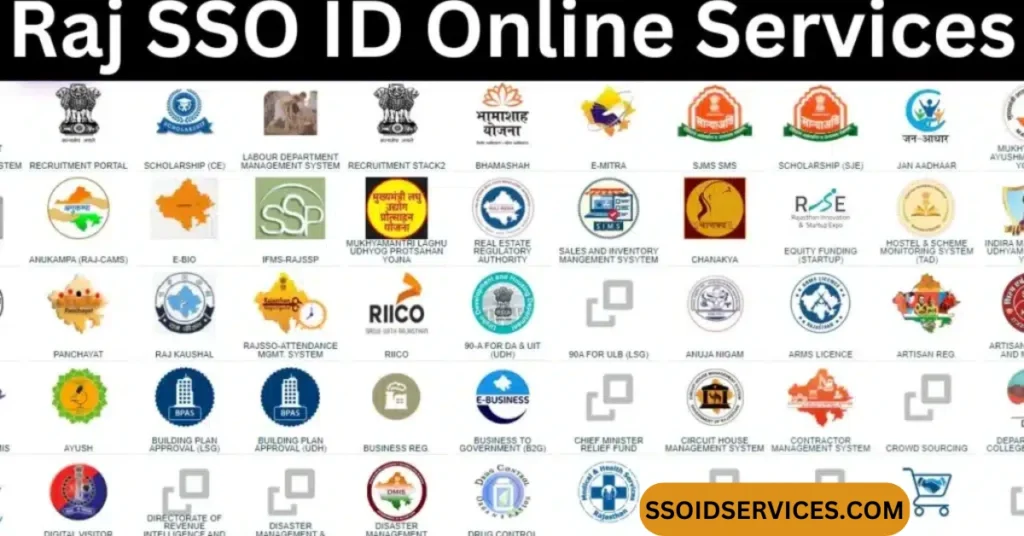
Moreover, by improving accountability and reducing potential corruption, this system supports the goals of digital governance. Digitally tracking all procurements activities provides an audit trail, which is easily reviewed by the auditor to verify compliance.
Conclusion
SSO ID Rajasthan, a powerful and innovative tool with the ability to transform the electronic procurement process in Rajasthan. In order to realize the potential of this tool, you must carefully examine all factors affecting its performance. Balance accessibility, security and interoperability. Also, ensure regulatory compliance. Scalability. And user support.
Stakeholders are encouraged to provide input and feedback as the SSO ID continues to develop. This will help to shape future developments. SSO ID Rajasthan, by doing this, can serve as a new model of digital governance for India.
